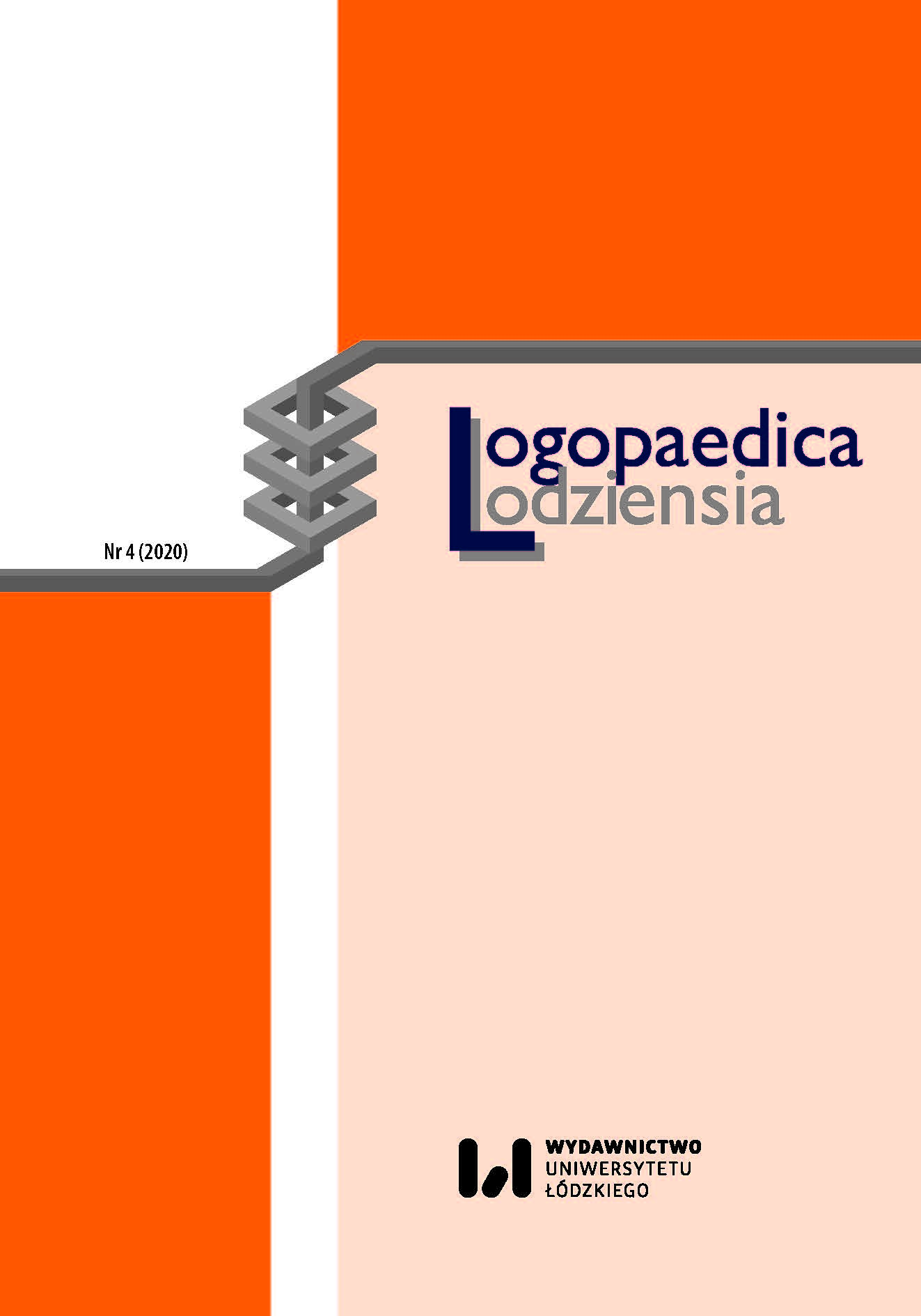Uwarunkowania skuteczności terapii utrwalonego jąkania w opiniach logopedów i studentów logopedii
Determinants of the Effectiveness of Persistent Stuttering Therapy in the Opinions of Speech-Language Therapists and SLT Students
Author(s): Paulina Piekacz, Katarzyna Węsierska, Marta WęsierskaSubject(s): Language and Literature Studies
Published by: Wydawnictwo Uniwersytetu Łódzkiego
Keywords: persistent stuttering/stammering; speech-language therapists (SLTs); SLT students; effectiveness; therapy/treatment
Summary/Abstract: The article discusses a recent study on the effectiveness of persistent or chronic stuttering therapy based on the opinions of speech-language therapists (SLT’s) and SLT students. The purpose of the study was to consider their opinions in light of the conditions of effectiveness. In the theoretical section of the article, factors affecting chronic stuttering therapy are outlined both directly and indirectly. Factors affecting the success of chronic stuttering treatment were analyzed. To achieve the aim of the study a bespoke survey was used. The survey involved 147 respondents (81 SLTs and 66 SLT students). The results of this study show that both SLTs and SLT students have relatively adequate knowledge of the conditions that result in effective stuttering therapy. According to those surveyed, effective therapy is associated with the application of a comprehensive assessment process, the use of hybrid therapeutic approaches and various forms of therapy, as well as its adaptation to the client’s individual needs. The study has revealed the positive attitude of the respondents toward the client’s self-therapy, his or her participation in self-help group meetings together with the immediate environment’s involvement in the support process. The results of the study indicate that the respondents are aware of the impact of the quality of SLT-client relationships on the success of the therapy process. However, most of those surveyed expressed considerable doubts about their own skills in implementing stuttering intervention. In the conclusion, the authors highlight that independently from the somewhat satisfactory level of knowledge about stuttering therapy it is important to pay attention to the development of practical competences and the self-confidence of SLTs and SLT students in this relm. Additionally the growing interest in the topic of speech and language disorders was highlighted.
Journal: Logopaedica Lodziensia
- Issue Year: 2020
- Issue No: 4
- Page Range: 187-204
- Page Count: 18
- Language: Polish

